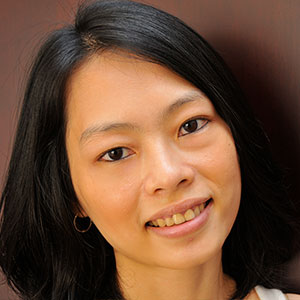The newly launched splinter movement by several PAS senior leaders – Gerakan Harapan Baru (GHB) or New Hope Movement – have received diverse reaction.
This development does not surprise, as there have been a series of events that pointed to an increasing number of ordinary people showing their aspirations for social and political change in the country.
Formed by the party’s group of progressives who were ousted in the June party elections, GHB is seen as a likely PAS replacement in the opposition alliance that has DAP and PKR as allies.
GHB has former PAS deputy president Mohamad Sabu or widely known as Mat Sabu as its pro-tem chairman.
The other senior leaders include former Selangor chief minister Tan Sri Muhammad Muhamad Taib; former PAS secretary-general Datuk Kamaruddin Jaafar and former PAS vice-president Salahuddin Ayub.
Pakatan Rakyat (PR) was a hope for many Malaysians who wished to see change in the country before it collapsed recently due to differences in ideology.
Some view the birth of GHB as an immediate restoration to the people’s faith towards opposition’s strength in bringing reforms.
The reality is, GHB with its progressive leaders has potential to blossom, but much has to be done.
In a recent interview with Channel News Asia, Datuk Seri Abdul Hadi Awang, PAS president, was quoted as saying that, “in our experience, all these splinter groups do not last more than two years”.
How could GHB geared towards providing Malaysians a political alternative?
First and foremost, it is a good move for GHB to open its door to non-Muslims and to treat everyone fairly regardless of their faith and beliefs.
Nevertheless, it is critical for GHB to distinctly define its ideological beliefs. At the same time, it also needs a clear political platform.
How can it be more alluring than those of Umno or PAS?
That would be the first crucial step for GHB as it started its road shows yesterday in Kangar, Perlis and Kota Baru in Kelantan.
People today view political parties in different ways for different purposes. In the contemporary political landscape, removing racial barrier is the key step to start with.
Malaysians have spent the last recent years in a state of uncertainty, yet many remain, holding out hope that things will get better for the country.
We watch as our ringgit hits its weakest level since September 1998, and the direct impact of the goods and services tax (GST) on our daily lives.
Worse, the core economic issues that should be at the centre of political debate have been depoliticised, coupled with a leadership crisis that remains ambiguous.
At this juncture, setting an ideology that is appealing will be far more convincing than any blind loyalty to a party label.
The answer, then, is for the progressives to start streamlining their strategy. More importantly, truly successful political parties should always start at the grassroots level.
There is a genuine thirst for political parties that don’t use divisive social issues to pursue their political agendas, but uses unifying economic issues to pursue policies that are beneficial to the people.
Any new political alternative should fall back on this and lead in genuine democratic and political reforms by empowering the people through various channels. – July 20, 2015.
* This is the personal opinion of the writer or publication and does not necessarily represent the views of The Malaysian Insider.


Comments
Please refrain from nicknames or comments of a racist, sexist, personal, vulgar or derogatory nature, or you may risk being blocked from commenting in our website. We encourage commenters to use their real names as their username. As comments are moderated, they may not appear immediately or even on the same day you posted them. We also reserve the right to delete off-topic comments